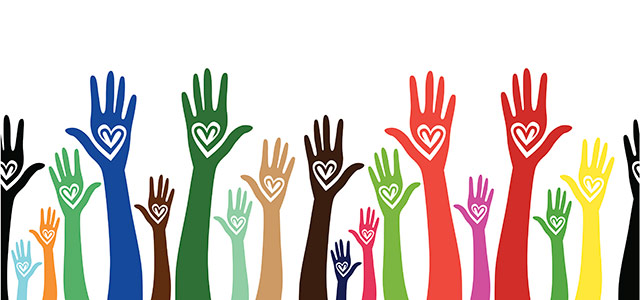In its simplest terms, philanthropy is at its core the desire to promote the welfare of others, and that is not an action – it’s a mindset. Monetary donations to worthy charitable organizations is a valuable branch of philanthropy, but it is no more noble than those who give their time volunteering at a soup kitchen, or even a stranger adding more coins to an expired parking meter.
As someone with a personal passion for the importance of education, I choose to support several projects supporting children such as Right to Play and Restore the Music UK. I have also volunteered in board and guest professor positions and am convinced that I have learned and contributed far more in this capacity than in seeking any monetary rewards. During a time of global crisis, philanthropy is more important than ever and below are some of the concrete ways becoming more giving-oriented can improve your life. I hope that those that can are encouraged to experience the joy and fulfillment that comes with philanthropic work firsthand.
It benefits your health and happiness.
No matter what mode of philanthropy you have the ability to pursue, countless studies have shown the positive effects it can bring. One recent study has found that spending money on others rather than themselves led to an enduring improvement in overall happiness, and another found that the emotional rewards of charitable giving are increased even more when the givers are made aware of the positive impacts their contributions are making. Scientifically, philanthropic activities trigger neural activity in the part of your brain that is linked to reward processing and pleasurable activities such as eating something delicious. Even smaller helpful behaviors such as running errands, cooking meals, and giving emotional support caused the participants to have a marked increase in net happiness and even life expectancy over a five-year period than those who didn’t.
It serves as a way to pay it forward.
As the saying goes, “no man is an island” and it would be self-centered to believe that we have gotten to where we are in life with no help whatsoever. I know in particular that I wouldn’t have had the wonderful opportunities and experiences I did in my life were it not for the support of my family, friends, and mentors, as well as the education I received throughout my life. For that reason, I have chosen to research and support charities that put an emphasis on health, education, and family to try and pay forward the opportunities and support I received. No matter where you are in your career, it is important to remember there are others coming up behind you, and uplifting the next generation is one of the best ways you can repay those who so generously helped you.
It gives you perspective.
I have come to find that if I am at a period in my life where I have not been able to contribute to others in a meaningful way for a while, I begin to feel absorbed with superficiality and that life lacks meaning. Engaging in philanthropic work gives you perspective and shows you what truly matters in life. In giving money to charity, it helps you come to terms with the idea of your own permanence. After all, can money truly be yours if you are only here for a short time? In giving your time to volunteer and interact with others who often lead lives quite different than yourself, you move out of the echo chamber that is your own circle of like-minded family and friends. It reminds you that each person in this world has a life as complex and vivid as your own. Through living a philanthropic life, it also forces you to grapple with your small place within the universe. By accepting this, acknowledging that although you are just one drop in an ocean, that ocean is vast and succeeding in having even a small impact in the world around you is significant.
It creates a sense of connectedness.
When we give to others we don’t only make them feel closer to us, we also feel closer to them. In being generous yourself, you also begin to more easily notice the small acts of kindness and generosity occurring around you and to you. This strengthens and amplifies a feeling of connectedness and cooperation with those in your communities. In fact, although “self-actualization” is the well-known highest need in Maslow’s hierarchy, later in his life he chose to amend his pyramid and place a new need above self-actualization: self-transcendence, or putting one’s own needs aside in favor of the service of others. In order to find true fulfillment in life, often that means shifting your perspective outside of yourself and onto the ones you care about, your community, and the world.
You are acting in line with human nature.
As stated earlier, giving activates the mesolimbic reward mechanism in our brain. In and of itself, it is termed the “reward mechanism” because it is typically activated when we receive something, not when we are giving something away. However, in one study, scientists gifted the participants with money and gave them the choice to keep all of it or anonymously donate some of it to charity. Every single participant chose to donate a percentage of their gifted money, and by analyzing the subjects in the test, the psychologists found that giving to charity activates this system even more than receiving money. Not only that, the action also activated a section of the brain that is associated with interpersonal attachment, which was silent when the participants received the money. In being philanthropic in your attitude and output, you are acting in part with the generosity that is deeply embedded in our systems.
Follow Joey Horn on Twitter and Crunchbase.


